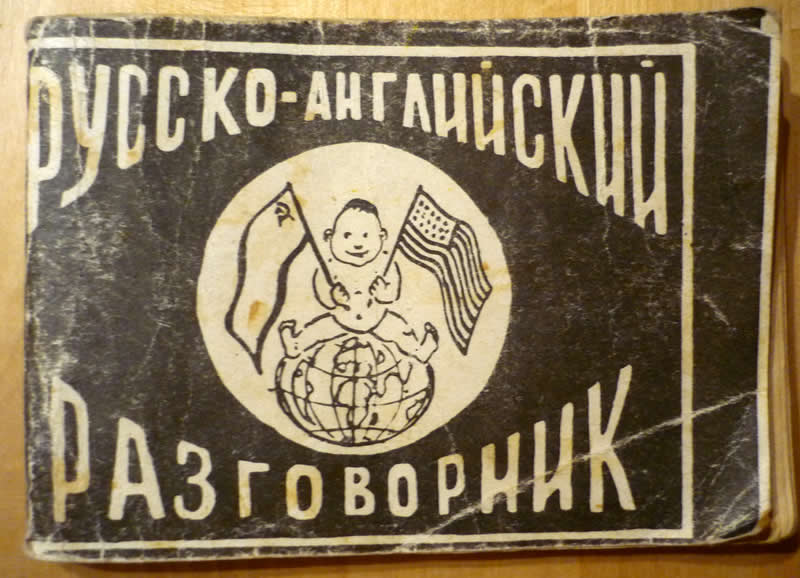
Are you planning an international vacation? Going somewhere on vacation can be very exciting, but when you travel somewhere that likely won’t speak your language it can also be quite nerve-racking. Even if you are surrounded by people you can feel isolated and trapped when you aren’t fluent in the native tongue.
Don’t let that stop you from travelling internationally, because being taken out of your comfort zone can end up becoming one of the greatest experiences of your life. You don’t have to be fluent in the native language of the country you are travelling to but you should learn some words and some etiquette.
Buy a Proper Guide or Phrase Book
If you found yourself in your local bookshop before your inter-continental travel, you probably noticed a variety of pocket travel guides and phrasebooks. You’ll get a varying use out of any of these books, depending on how long you are going to be staying in the country and having to thumb through a book to find the right phrase to say may end up in you stumbling and shrugging your shoulders in defeat.
You do want to find a phrasebook that gives you phonetic pronunciations for the words in English and explains any subtleties of the spoken word. A phrasebook of Russian words is useless if the pronunciations are written in Cyrillic and you can’t read that, likewise a phrasebook for speaking Chinese is pointless if it doesn’t explain the pronunciation of the four tones.
A good guidebook will also clue you in on some of the details of a culture’s rules and etiquette. By learning how to act you won’t be seen as another outrageous foreigner or some kind of pariah.
Buy some of those handy little sticky notes you can use to bookmark pages you might need in a pinch, such as asking for directions or reserving a hotel room. Study the book too. You’ll probably have a couple of hours on a plane coupled with several hours of waiting at an airport; you’ll have the time to read.
Learn The Most Important Words
If you are struggling to learn the language, then focus on the most critical and important words you should know.
Your street, your hotel, and/or neighbourhood
It is pretty safe to assume that most taxi drivers know their cities pretty well. If you end up lost or far from home and a taxi is your best way back, then knowing the name of your hotel, the street that it’s on, or the name of the neighbourhood that you are saving in is usually all you’ll need to say to a cab driver. Knowing the name of the airport (if there’s more than one) would probably be useful information too.
How to order food or the names of dishes
Everybody needs to eat. Personally I recommend avoiding any recognizable fast food franchises that might be located nearby to where you are staying, because you’ll have a more enriched cultural experience when you actually partake in the local culture, and food culture is the best part of travel! Don’t be fooled into thinking that walking into a McDonald’s means the people behind the counter will speak your language.
Restaurant etiquette is quite different across cultures. In China nearly any restaurant will make a dish you ask for as many family owned establishments do not have pre-planned menus, while in Germany many restaurants have pre-planned menus and may find it offensive if you order something off-menu.
Along these lines learning the names of common meats and vegetables could also be useful. Not every culture eats the same foods and you might have trouble dealing with that. It could help to know that you are not ordering something like beef stew when you are a strict vegetarian.
Finding emergency services
Imagine this scenario: you’re walking around town doing some window shopping when your lunch from a couple of hours ago decides to make its presence known in a rather uncomfortable way. You might be regretting not taking the time to ask “can I use your bathroom?”
Besides that you may need to make use of a hospital, dentist, veterinarian, or another kind of emergency service. These are words you want to know in your time of need.
It may also help to have a backup or emergency plan in the even that something does go awry. Have an emergency contact or a phone number of a medical service that speaks your language. Many travel companies may be able to provide you with this information and many health insurance agencies may even offer travel insurance packages that can help in the event of a hospital visit.
Practice practice practice
Take every chance you have to practice your new (temporary) language. Speak with people on the plane that may be returning home or have experience living in the country. Don’t be afraid to strike up a conversation with the people that you interact with when you make it to your vacation destination.
Don’t be afraid to step out of your comfort zone when you’re travelling. Get right in the middle of culture and you’ll have the greatest memories that will last a lifetime.
Photo by: Konrad Lawson





























